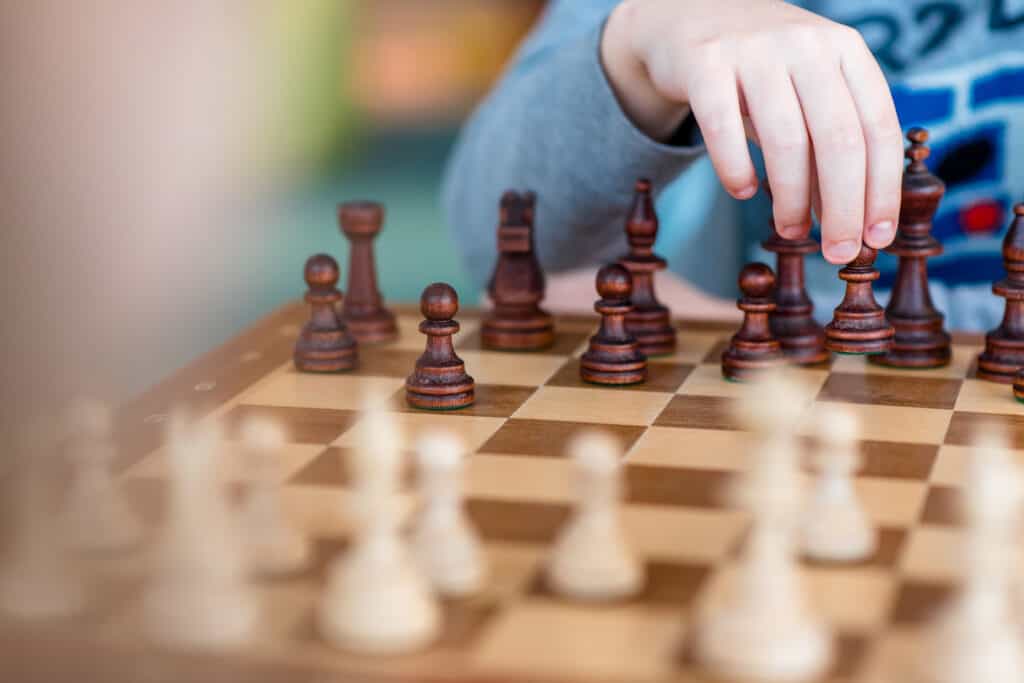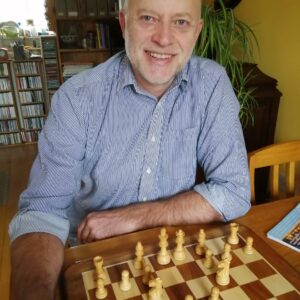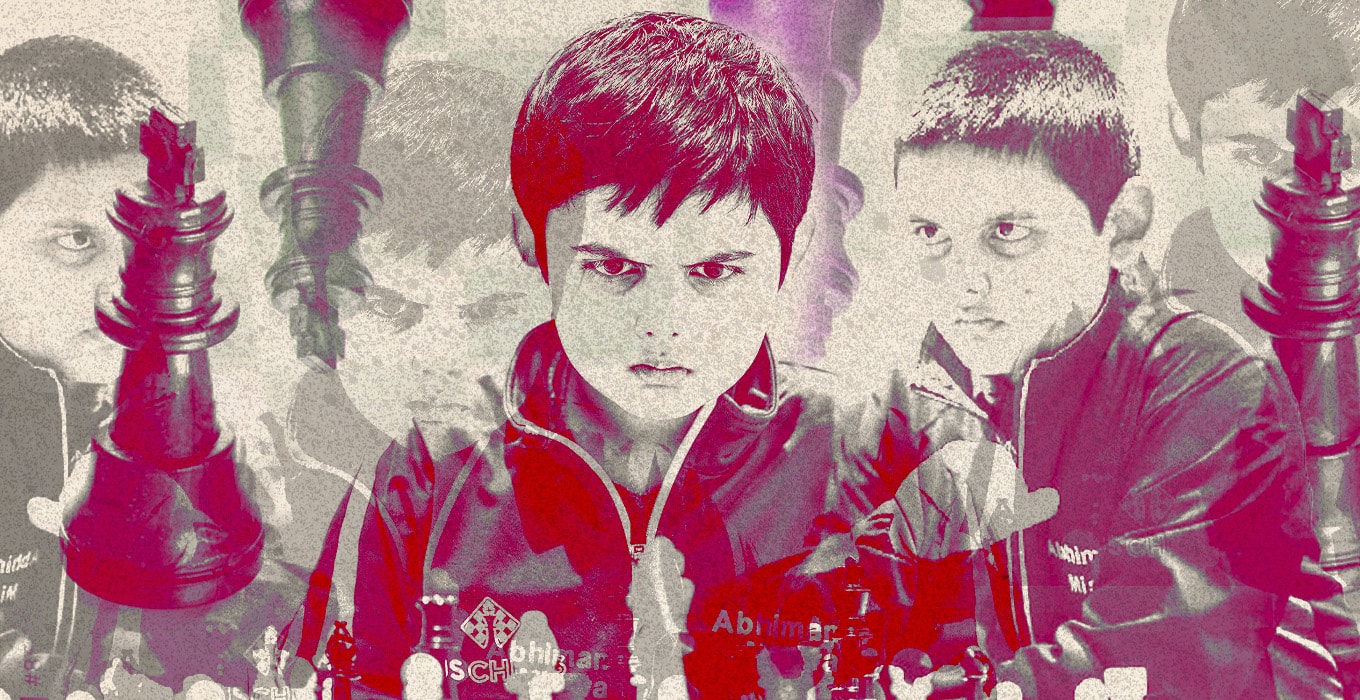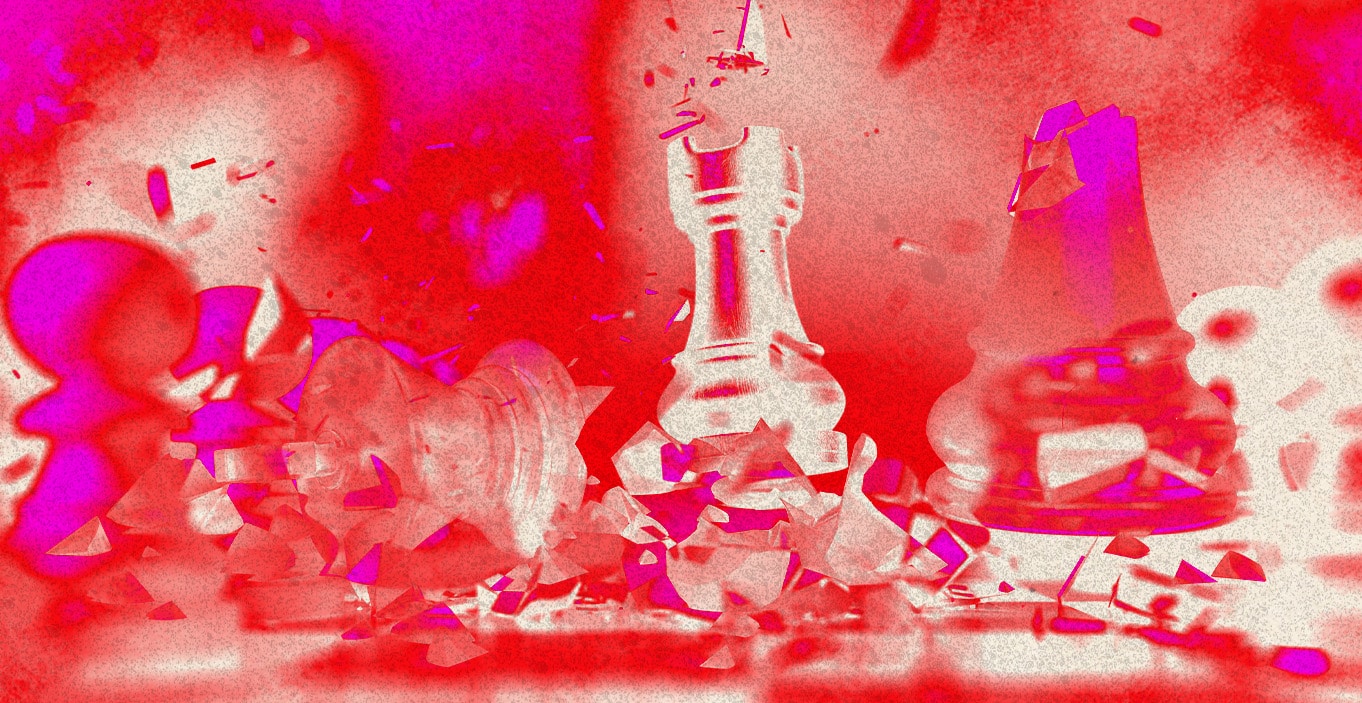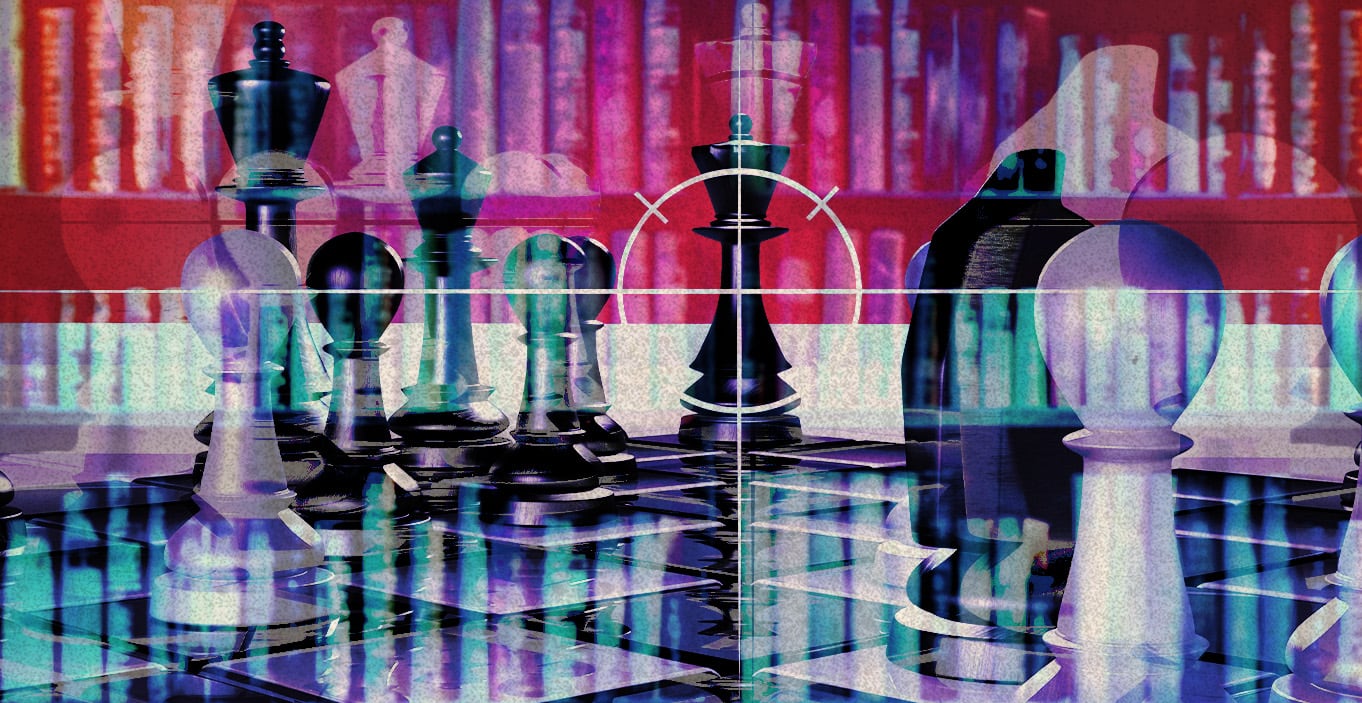Today we bring you a special guest post by Professor Barry Hymer, the Chessable Science Consultant, on the subject of spaced repetition.
Professor Hymer will already be familiar to our regular readers, due to his previous articles on the subjects of Chess and the Science of Learning and Learning: A Marathon, Not a Sprint. Additionally, Professor Hymer was one of our key speakers at ChessTech2020.
If you missed Professor’s Hymer’s earlier articles then please catch up with them as soon as you can. This is building up to be a very valuable and instructive series indeed.
Over to Professor Hymer…
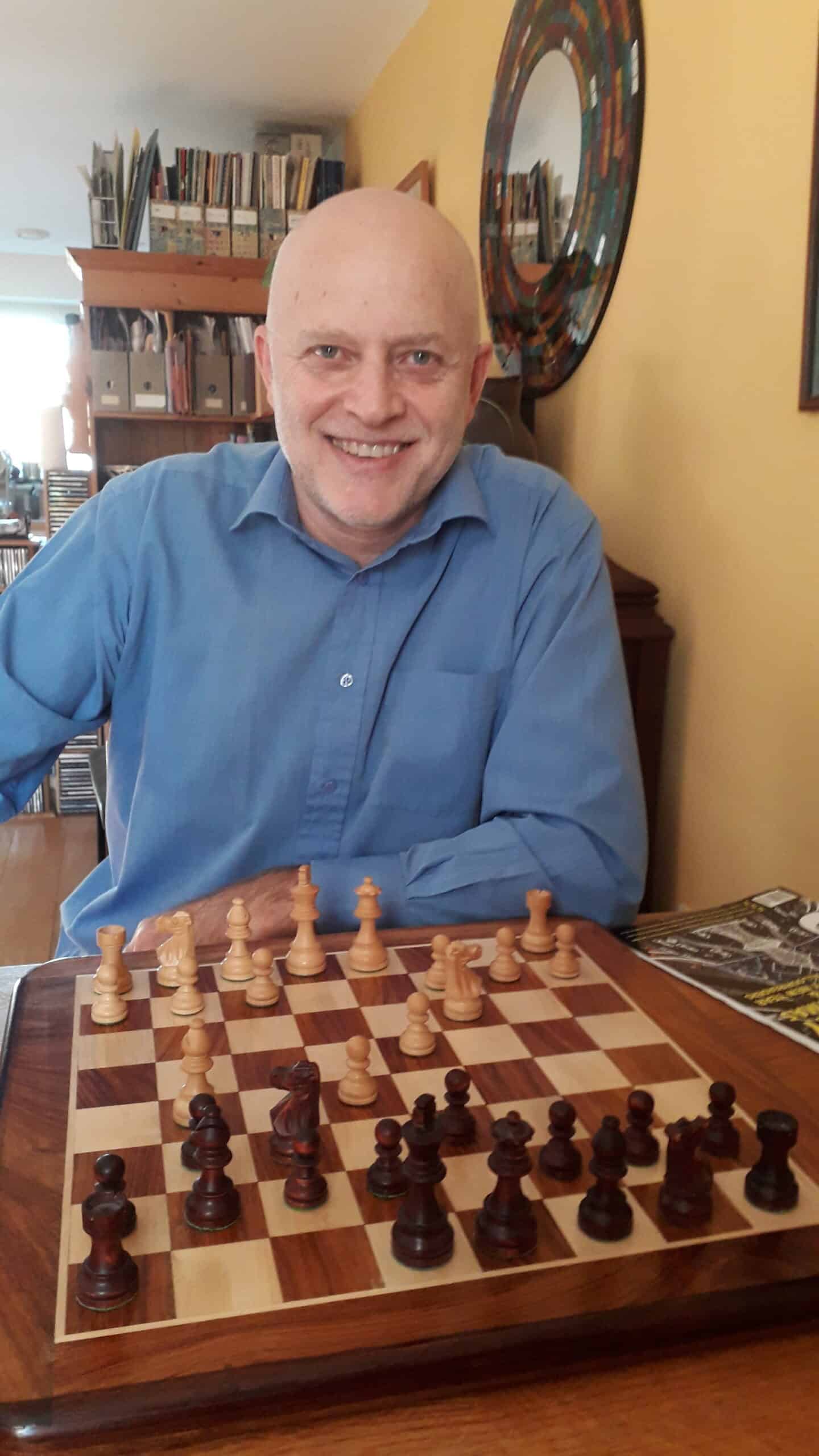
Why Spaced Repetition Learning is Nothing Like School
Over the seasonal break I invested time in making serious inroads into International Master John Bartholomew and CraftyRaf’s awesome Checkmate Patterns course. Over the same period, I turned 60.
I’m not implying there’s a causal connection here (most players will master the course in well under six decades), but it did give me some pause for thought: I’m now more than old enough to know that any significant achievement is necessarily prefaced by small, incremental gains and frequent setbacks, so why did certain ‘fails’ trigger such visceral reactions of frustration, anger, and self-loathing in me?
After all, I’ve even co-written a book in which we make the case that chess improvement requires us to welcome and deal wisely with failure, and yet here was a classic case of ‘Physician, heal thyself!’
Subsequent communication with Chessable colleagues has revealed that I’m not alone. And many of our members, I’m told, experience similar reactions – sometimes to the point of throwing in the towel on the whole enterprise.
A Healthy Reaction to Error
We know intellectually that learning feeds on healthy reaction to error, and that the Chessable platform exploits this beautifully, but failure still often flicks a rational-override switch to trigger our reptilian brain into full emotional meltdown, flooding our brain with dark and unhelpful thoughts.
Our co-founder, David Kramaley, believes that our terror of – and response to – getting something wrong has its origins in our fear of assessment – possibly with its roots back in our schooldays.
I think he might be onto something, but it’s probably not assessment per se that’s the issue here (assessment done well has astonishingly high effect sizes on achievement – in fact high-quality assessment is a feature of some of the strongest influences on learning to be found in the scientific literature), but assessment in association with judgement. When we feel we’re being judged, or even worse, when we’ve internalised these judgments ourselves, we’re at the mercy of countless nasty residuals – echoes of moments in our lives which have left us variously humiliated, shamed, and exposed.
So how can we better align our intellectual and emotional responses at critical (and self-critical) moments?
I believe we can make good progress in reframing our unhelpful self-attributions (‘I’m thick’, ‘I’ll never make significant progress at my age’, ‘Do others find this easier than me?’ etc) by drawing on the very concepts that give Chessable much of its power.
Spaced Repetition
I’m thinking specifically here of the concept of spaced repetition and its associated processes. Michael Nielsen (2018) coined a powerful expression when he described spaced repetition systems as “making memory a choice” – Augmenting Long-term Memory (augmentingcognition.com).
Note, not an inborn capacity or talent – but a choice. We are choosing to remember when we engage in the MoveTrainer™ technology, because this technology insists on retrieval of information, and retrieval is what distinguishes effective from ineffective or less effective practices – like simply reminding ourselves of something by re-reading it, or underlining it, or highlighting it with a marker-pen.
Retrieval requires us actively and effortfully to engage in a task, rather than simply guess at or intuit an answer [note: what we often call ‘intuition’ can be trained too, but that’s for another day]. It is the effortful nature of retrieval that gives spaced repetition its traction: if the correct response is too easily recalled (e.g. if a position appears every day in Review mode), the retrieval practice has minimal effect.
Direct Experiences
Let’s relate these insights to my experiences with Checkmate Patterns. For members who have yet to sample this course’s delights, you will be introduced to the essential tabiya of mating patterns – dovetail mate, suffocation mate, Boden’s or Vukovic’s mate, Damiano bishop’s mate, etc, courtesy of finishes from actual games in (almost) all instances.
Of course the legends of chess are well represented, and from all periods of chess history, but part of the joy is in encountering gems from amateur practice – even friends, foes and old acquaintances whose contributions to chess now get preserved for posterity. It amounts in toto to a well-marshalled crash-course in mating pattern recognition.
Even for players very new to the game, many positions will be easily solved – variants of basic Scholar’s or Fool’s mate, or one-move smotherings arising from well-worn opening traps. But from time to time, and not only in the final hundred positions, almost everyone will encounter positions which are challenging, often repeatedly so.
Spaced Repetition in Action
Spaced repetition kept hurling Pokojowczyk-Timoscenko (1979) back at me, for instance, for the simple reason that it learned I was lousy at solving it. And towards the end of the course, in acts of repeated spite and vindictiveness, I kept getting confronted with Leal-Feller (2010), and this one:
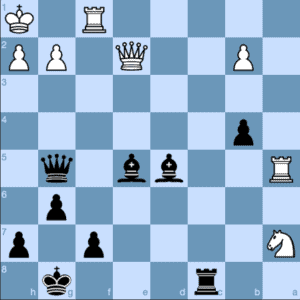
Bent Larsen – Ljubomir Ljubojevic
Milan, 1975
With Black to move, and despite the super-auspicious configuration of his forces, I defy anyone operating at a sub-Ljubo level to find quickly (if at all) a clear and forcing route to a Damiano-bishop or (depending on White’s response) a back rank mate.
I certainly struggled. And this is the point. In staying in the game, in trying each time I was confronted with it to retrieve the correct moves and the ideas behind them, I was choosing to remember. And the interesting thing is that slowly, effortfully, incrementally, it worked – even with my 60-year-old neurons.
Were I in the future to experience this position over the board, after you’d warmly congratulated me on even this achievement, just watch the wizardry with which I go on summarily to despatch my ersatz Larsen!
Rather more plausibly and importantly, I know that through this process I have memorised patterns which will support me in analogous but non-identical positions. And I have realized that this learning would not have happened in the absence of the struggle for active retrieval.
By contrast, the positions I solved easily were products of past learning, and amount therefore to missed opportunities for kicking on.
The Experience of Learning
In reflecting on my recent experience of learning, I am struck by how different the assessment-for-learning of the Chessable experience is from the judgment-based assessments I’ve experienced in school and in later life. And therefore how important it is for me to learn to de-couple my fails from negative emotions, and instead to celebrate these as moments rich in scope for new learning.
As Andy Matuschak pointed out in a paper written just last month – How to write good prompts: using spaced repetition to create understanding (andymatuschak.org) – we call the learning produced by retrieval the ‘testing effect’ because it occurs when you explicitly test yourself, reaching within to recall some knowledge from the tangle of your mind.
As he points out, such tests might look like typical school exams, but in a very real sense they’re the opposite: ‘retrieval practice is about testing your knowledge to produce learning, rather than to assess learning.’
So I wish you many trigger-happy moments in 2021, and a year rich in learning production.
In the famous words of Samuel Beckett: ‘Ever tried. Ever failed. No matter. Try again. Fail again. Fail better.’ And in so doing, learn.
As always, I’d welcome members’ contact with thoughts, ideas and feedback on these posts: email [email protected].


